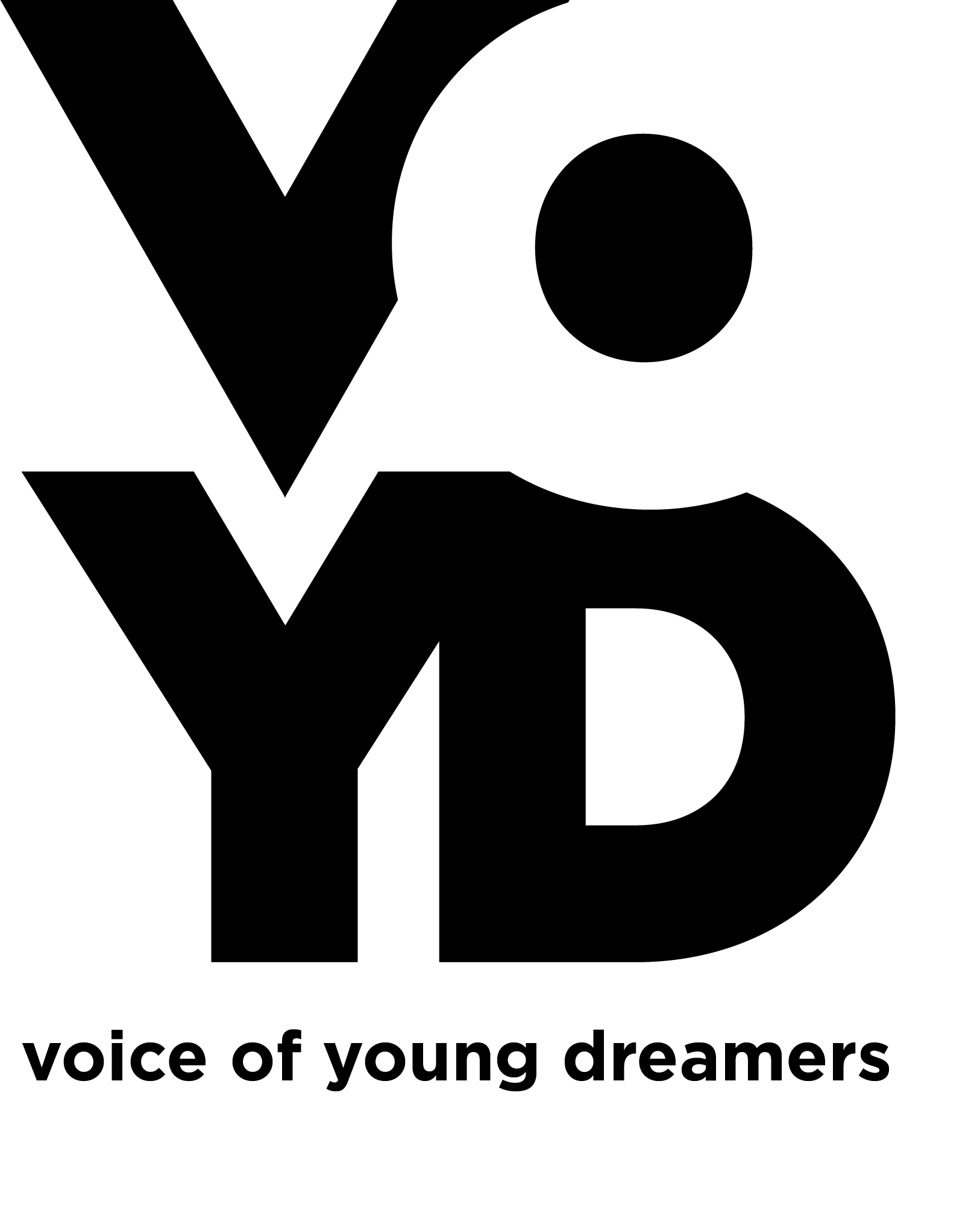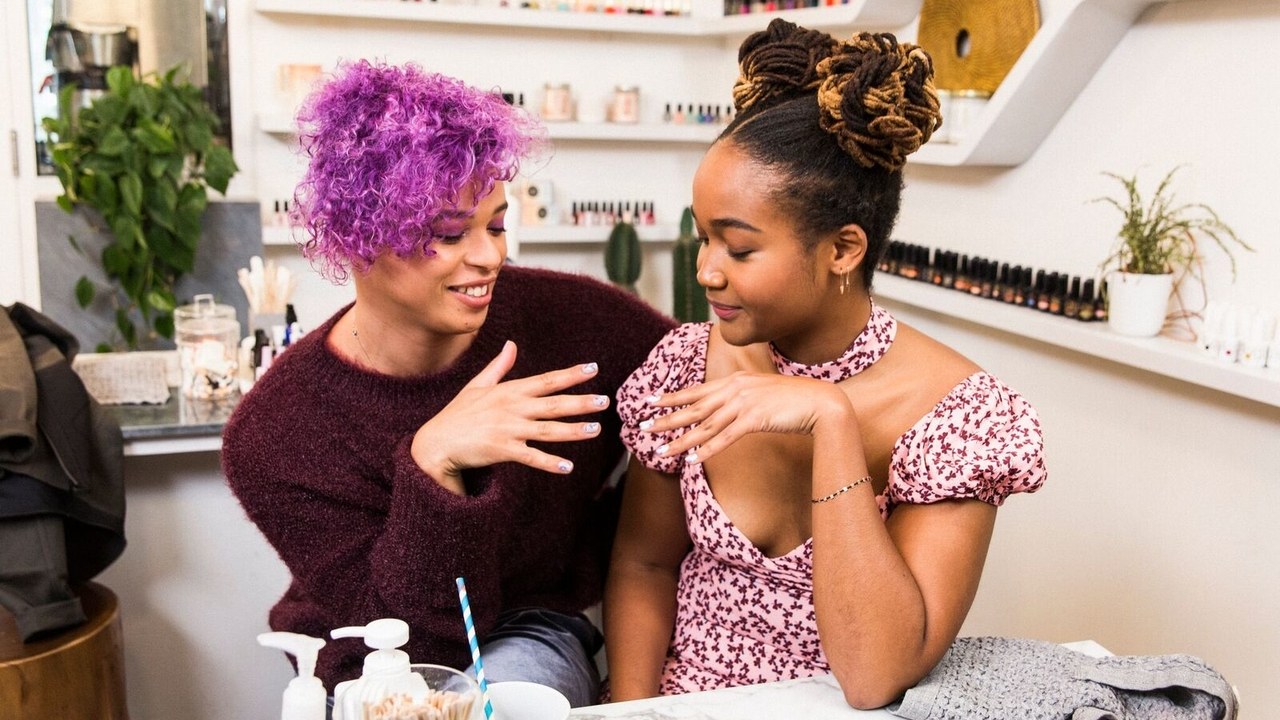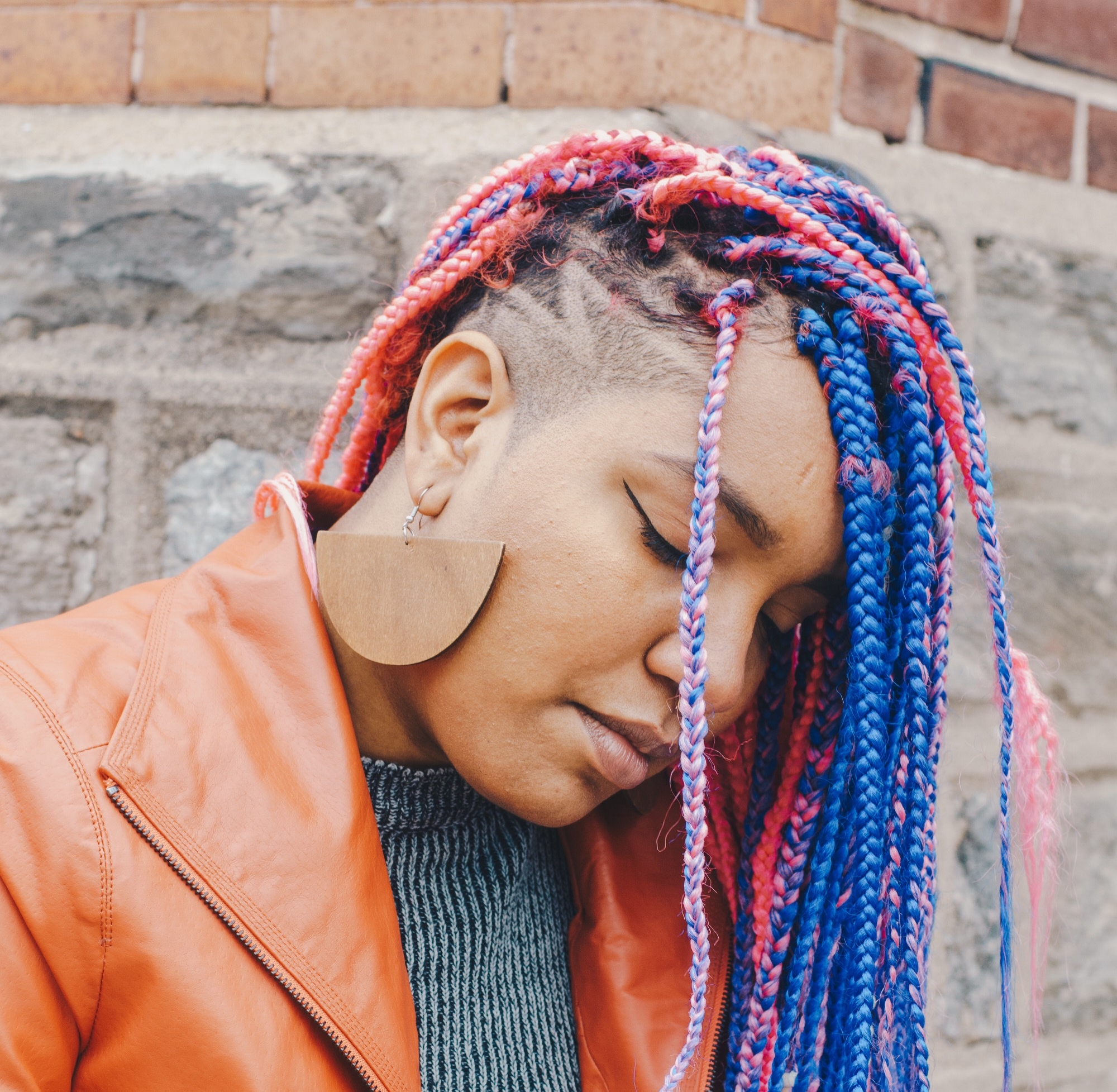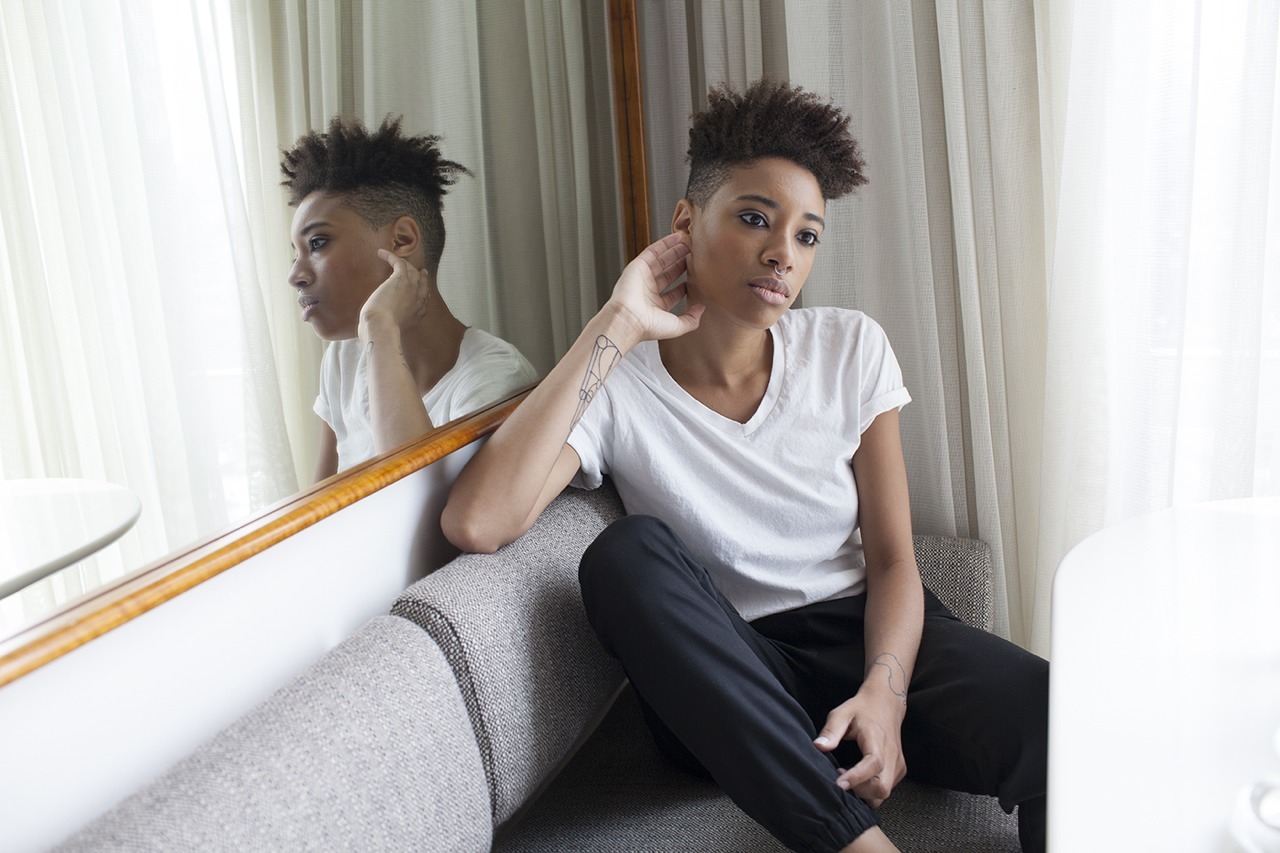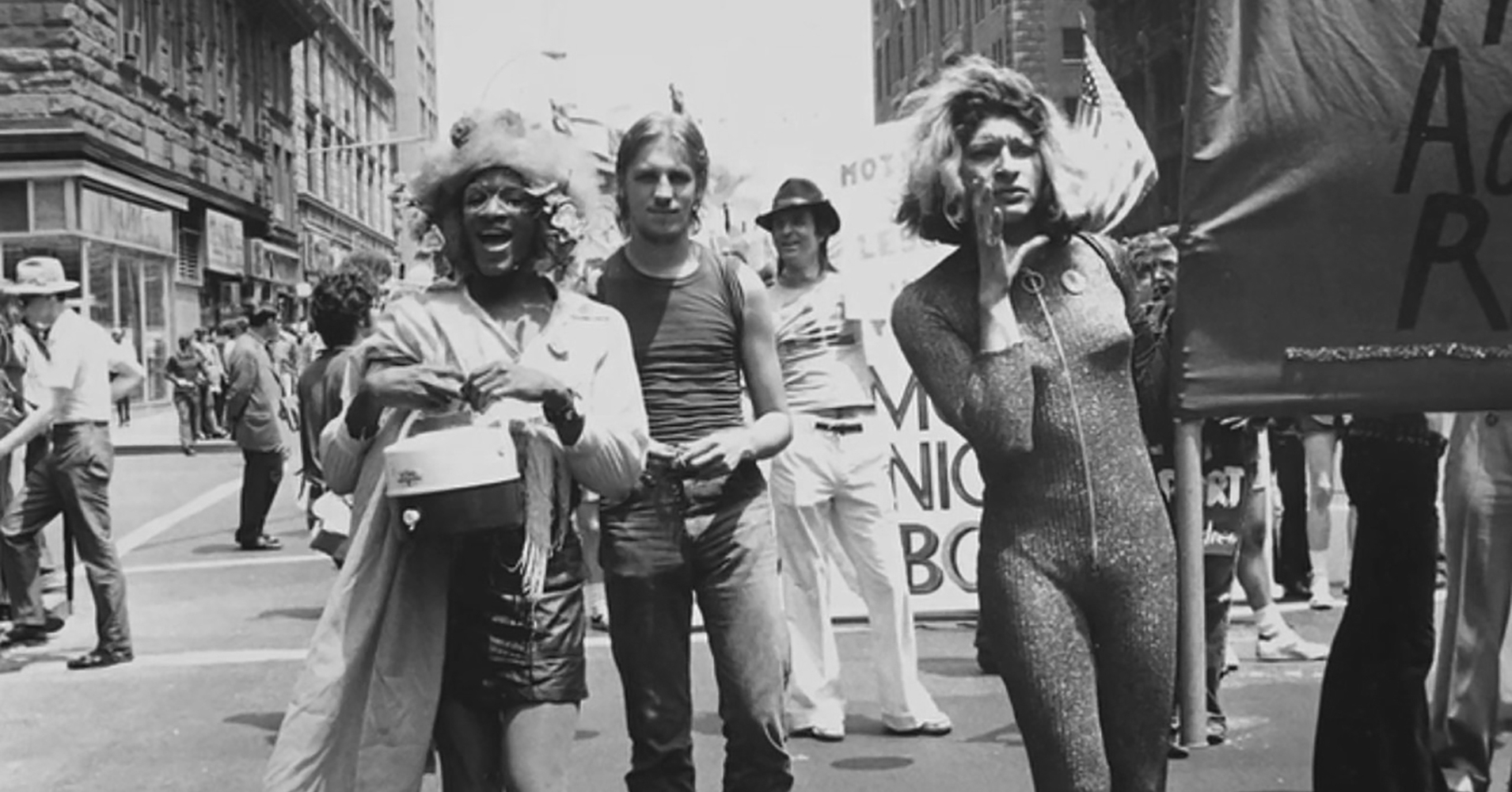Loaded Politics of Black Queer Hair

Chaka, a slender, gender-nonconforming queer with a fade haircut that’s covered with a fitted black baseball cap, was admiring my new look at a Black and POC queer self-care kickback. They’ve complimented me on my ‘90s, Jada Pinkett-Smith inspired ‘do, a striking contrast to the Kelis-influenced Afro wig I’d flaunted when we first met at a queer party several months ago. We maintained friendly banter, casually shooting the shit while their partner says her evening farewells to the rest of the crew when Chaka asks me who hooked me up with my tight hairstyle.
“At a barber shop in Schaumburg,” I answered, without the slightest hesitation. “Dude hooks my shit up.”
Chaka’s eyebrows rose in surprise. “Really? I hate barbershops. After a bad experience in one, I never went back,” they reply, downcasting their gaze uncomfortably as if struggling to suppress that particularly painful memory. Despite my inner confusion at their sudden proclamation, I refrained from outwardly questioning them at the sight of their discomfort. Months later, I’d come to appreciate the insightful, but a short conversation that night in my own understanding of the charged aesthetic keynote that is Black queer hair. The racial, gender and sexual dynamics of Black hair in the lives of Black queer people is hardly ever a casual affair, but very much an intrinsically intense journey on the path to embracing our identities as marginalized people. For our community, navigating hairstyles is undoubtedly fraught with gendered and racialized trauma, but simultaneously replete with the exhilarating emotions of personal liberation.
The politics of Black queer hair draws parallels from but still diverges from Black cishet experiences in our personal understandings of locks. In the collective Black experience, African hairstyles are still routinely scrutinized, outlawed, disrespected, and criminalized. Thus, hair for Black people is not merely “hair”; it can symbolize one’s social status, the potential for social mobility, creativity, and authority. From African hair braiding to the hot comb, hair can cement community, familial bonds, and create new connections.
The celebration of Black hair in the Black queer community takes hair to the ultimate height of theater and dramatic effect. Black drag queens, glamorously dripping in glitter and sashaying in 7-inch heels, whip their wigs gloriously to the tunes of divas of yesteryear and presently, as if channeling the African divine. Black vogue butch-femme queens, like the late icon Willi Ninja, exhibit hair control as an additive feature of vogue dance, bringing tresses to life. Long hair for Black queer men symbolizes an embrace of femininity that is routinely stigmatized or policed, due to cisgender heterosexual norms of hyper-masculinity. Shorter hair or cornrows for bisexual and gay women often represents a celebration of the masculine or androgyny which is denied to them under patriarchal standards of beauty. Black queer hair, even when apolitically unassuming, often makes a political statement against outmoded ideas of Black sexual politics.
The trauma in Black queer memories regarding hair can also vastly differ from Black cishet apprehensions. While traditionally Black barbershops and beauty shops are the social sanctuaries and therapeutic outlet for some, they often elicit pain in the lives of queer people. Black barber shops, individually are often spaces that stigmatize Black queer masculinity. Queer Black women and gender-nonconforming people often feel stigmatized in many conservative Black barber shops that don’t cater to them as valuable customers due to their gender presentation, thus isolating them from a vital cultural staple in Black communities.
Devan Shimoyama, a visual artist, recreating hyper-masculine barber shops with glitter and sequin paintings remarks with his solo exhibition Sweet, “The black barbershop is not quite [a safe space] for gay black men or women, as it is hyper-masculine and heteronormative and at times homophobic….This body of work conceptually came out of conversing with other black gay men about our experiences in Black barbershops,” Shimoyama said. “And being able to meet so many new people who immediately relate to those same experiences expressed in the work felt like the work functioned as a call to a community of individuals who could really understand each other.” As Shimoyama navigates a new world for Black queer men to explore their identities and creating a safe space inclusive of different gender identities and sexualities, Black beauty shops are less discussed as places of tension for Black queer women.
"The black barbershop is not quite [a safe space] for gay black men or women, as it is hyper-masculine and heteronormative and at times homophobic"
While beauty shops lack the hyper-masculinity of Black barber shops, the dynamics of social interaction in a traditional femme space such as Black beauty shops complicate matters for Black queer women, specifically Black queer women whose gender identity, and presentation falls on the androgynous or masculine side. Can Black queer women openly discuss romantic and sexual desire in a beauty shop where the majority of the conversation is geared toward Black cishet women’s romantic experiences? What would be the response of the hair stylist if she were to discover her client was a masculine Black queer woman different from her feminine cishet clients? How do Black gender-nonconforming people who identify as femme and experience alienation in a barber shop navigate a place in a Black beauty shop?
These are the questions I ponder as I traverse to the suburbs to get my haircut from a queer Boricua woman, Lova, with the colors of the Puerto Rican flag detailed on her whisker clippers. Due to my inability to journey this far out of the city, we don’t mainly share a deep friendship. The one time we do share an unspoken queer understanding is when I remark about my desire to go to Dyke March in the summer. I recall seeing a small smirk creep across Lova’s face as I describe the wild time I’m going to have. She shakes her head and says that the Pride Parade is too much for her and that she’d rather be by the poolside with her girlfriend. That moment, that one instance of recognition from another queer woman of color is the first time in beauty or barbershop as a Black queer woman that I’ve ever really been seen, even if the effect passes me momentarily.
